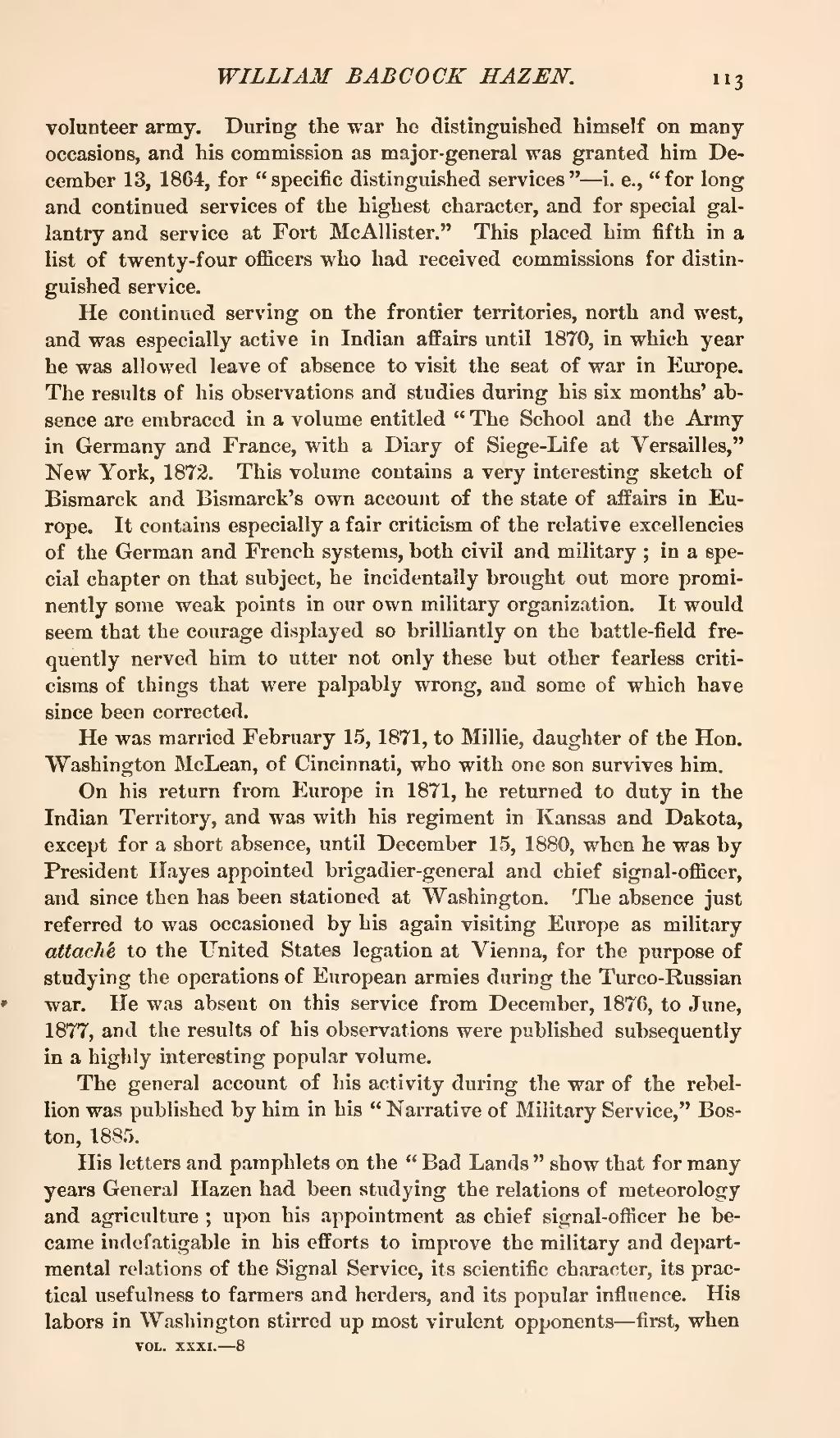volunteer army. During the war he distinguished himself on many occasions, and his commission as major-general was granted him December 13, 1864, for "specific distinguished services"—i. e., "for long and continued services of the highest character, and for special gallantry and service at Fort McAllister." This placed him fifth in a list of twenty-four officers who had received commissions for distinguished service.
He continued serving on the frontier territories, north and west, and was especially active in Indian affairs until 1870, in which year he was allowed leave of absence to visit the seat of war in Europe. The results of his observations and studies during his six months' absence are embraced in a volume entitled "The School and the Army in Germany and France, with a Diary of Siege-Life at Versailles," New York, 1872. This volume contains a very interesting sketch of Bismarck and Bismarck's own account of the state of affairs in Europe. It contains especially a fair criticism of the relative excellencies of the German and French systems, both civil and military; in a special chapter on that subject, he incidentally brought out more prominently some weak points in our own military organization. It would seem that the courage displayed so brilliantly on the battle-field frequently nerved him to utter not only these but other fearless criticisms of things that were palpably wrong, and some of which have since been corrected.
He was married February 15, 1871, to Millie, daughter of the Hon. Washington McLean, of Cincinnati, who with one son survives him.
On his return from Europe in 1871, he returned to duty in the Indian Territory, and was with his regiment in Kansas and Dakota, except for a short absence, until December 15, 1880, when he was by President Hayes appointed brigadier-general and chief signal-officer, and since then has been stationed at Washington. The absence just referred to was occasioned by his again visiting Europe as military attaché to the United States legation at Vienna, for the purpose of studying the operations of European armies during the Turco-Russian war. He was absent on this service from December, 1876, to June, 1877, and the results of his observations were published subsequently in a highly interesting popular volume.
The general account of his activity during the war of the rebellion was published by him in his "Narrative of Military Service," Boston, 1885.
His letters and pamphlets on the "Bad Lands" show that for many years General Hazen had been studying the relations of meteorology and agriculture; upon his appointment as chief signal-officer he became indefatigable in his efforts to improve the military and departmental relations of the Signal Service, its scientific character, its practical usefulness to farmers and herders, and its popular influence. His labors in Washington stirred up most virulent opponents—first, when
